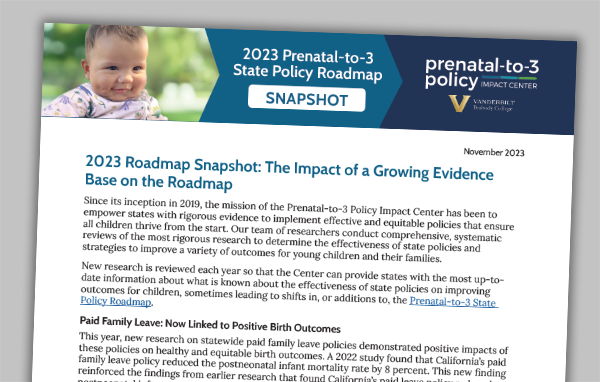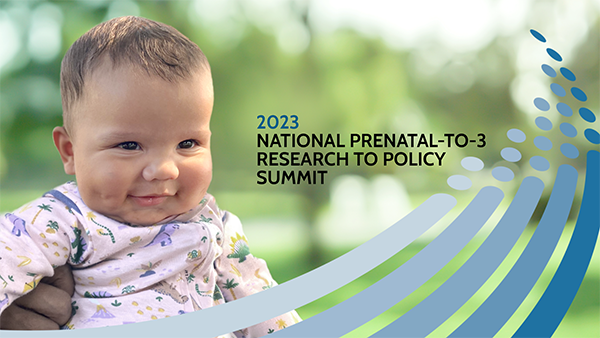- Home
- /
- Research Topics
- /
- Early Intervention
Early Intervention
Early Intervention services support the healthy development of infants and toddlers who have developmental delays, medical conditions or disabilities, or environmental or social risk factors for delays. These services may prevent further delays and reduce the need for special education services or more intensive supports when children are older.
Featured Resource
Early Intervention services improve children’s cognitive, motor, behavioral, and language development, and boosts maternal self-confidence and role satisfaction.
Related Resources
Did you miss the Summit? Click here to access the full recording.
- Blog
- |
This is a guest post by Kim Gilsdorf, a Program Officer for the Perigee Fund, a national philanthropy committed to prenatal-to-age-3 mental health. I work with organizations that support the mental health of families every
- Blog
- |
Though most legislative sessions have adjourned, lawmakers and advocates across the country continue to advance efforts to support children and families. A lot can happen at the tail end of a legislative session, as Colorado
- Blog
- |
State lawmakers face difficult choices about how to use scarce public resources. To ensure that investments have a big impact on young children, lawmakers often want to know—which policies actually work? The Prenatal-to-3 Policy Impact
This year, the Prenatal-to-3 State Policy Roadmap—a guide for state leaders on the most effective investments to ensure all children thrive from the start, based on the most rigorous evidence available—has expanded. The Roadmap policies
- Blog
- |
Last Thursday, October 12, the Prenatal-to-3 Policy Impact Center hosted our fourth annual Research to Policy Summit . We shared the many ways state policy choices impact families, demonstrated these impacts through our simulation of a family of three in different states, detailed the most effective policies states can employ to help children thrive from the start, and summarized the progress states have made this year toward implementing effective policies.







